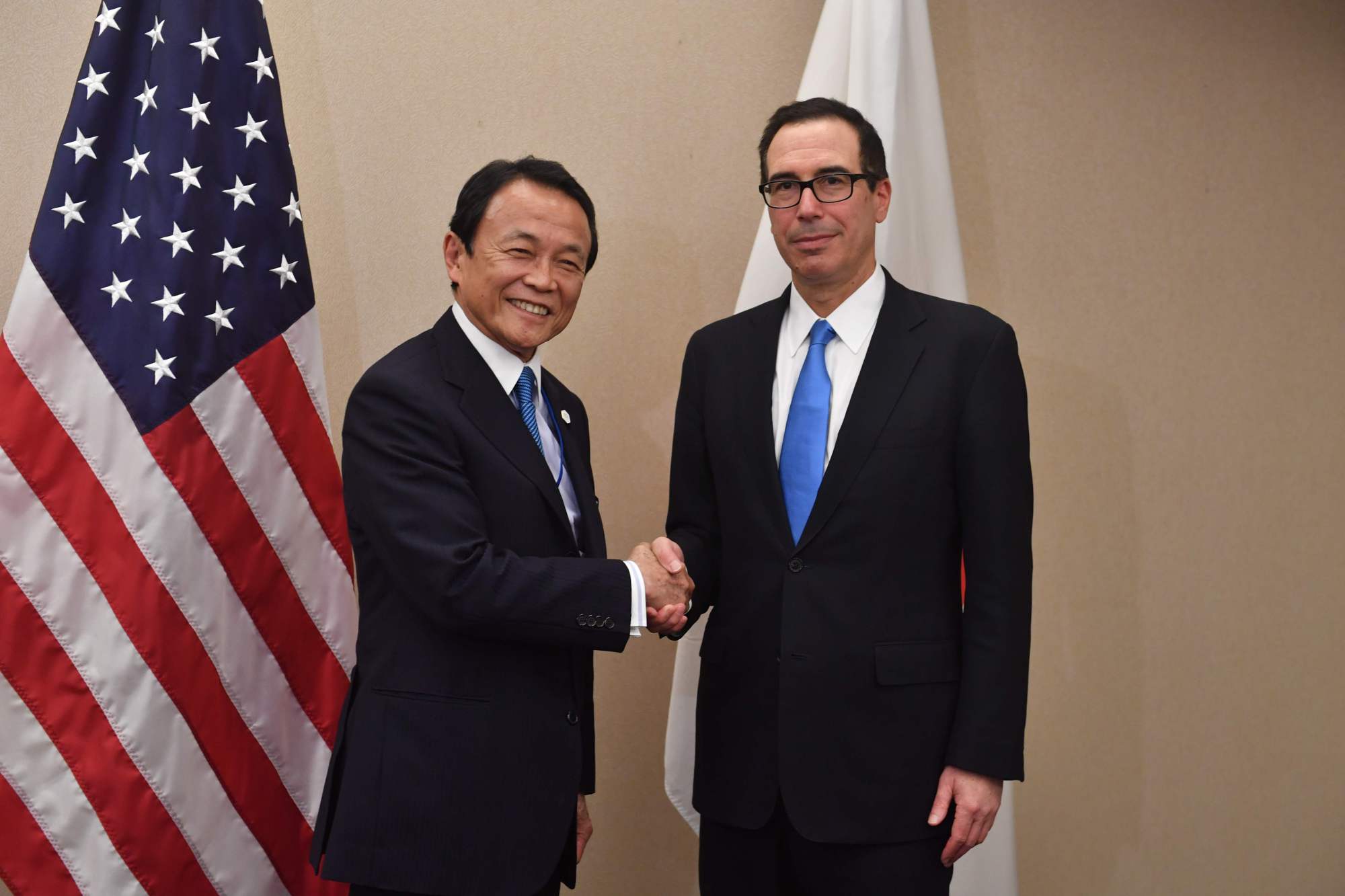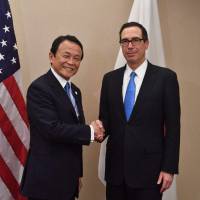The finance chiefs of Japan and the United States agreed Thursday that currency issues should be handled at their level, downplaying comments from U.S. President Donald Trump that the dollar was getting "too strong."
Finance Minister Taro Aso, after meeting with U.S. Treasury Secretary Steven Mnuchin on the sidelines of a Group of 20 finance chiefs' gathering in Washington, said he did not "take issue" with Trump's comments.
Prime Minister Shinzo Abe and Trump have agreed that currency issues should be managed by the two countries' finance chiefs. Aso said he "reaffirmed" this stance during his talks with Mnuchin.
Aso and Mnuchin also discussed cooperation in imposing economic sanctions in the wake of North Korea's missile launches.
Trump has accused Japan of devaluing its currency to gain an advantage in trade, but Tokyo dismisses this, arguing the Bank of Japan's monetary easing was designed to achieve its 2 percent inflation target and not to devalue the yen.
Earlier in the month, the U.S. Treasury Department kept Japan, China and four other economies on its monitoring list for their currency practices.
When Aso and Mnuchin held talks in Germany's Baden-Baden in March, they agreed to maintain existing international pledges on currencies, such as avoiding "competitive devaluations" and refraining from targeting foreign exchange rates for competitive purposes.
The dollar-yen pair has been capped in recent weeks by concern about rising geopolitical risks following the U.S. military attack on Syria and North Korea's missile launches as the Japanese currency tends to find favor in times of market uncertainty.
If the world's largest economy picks up growth momentum under Trump, who has promised to increase infrastructure spending, it will strengthen the case for the Federal Reserve to raise interest rates and lift the dollar against the yen, according to currency analysts.




